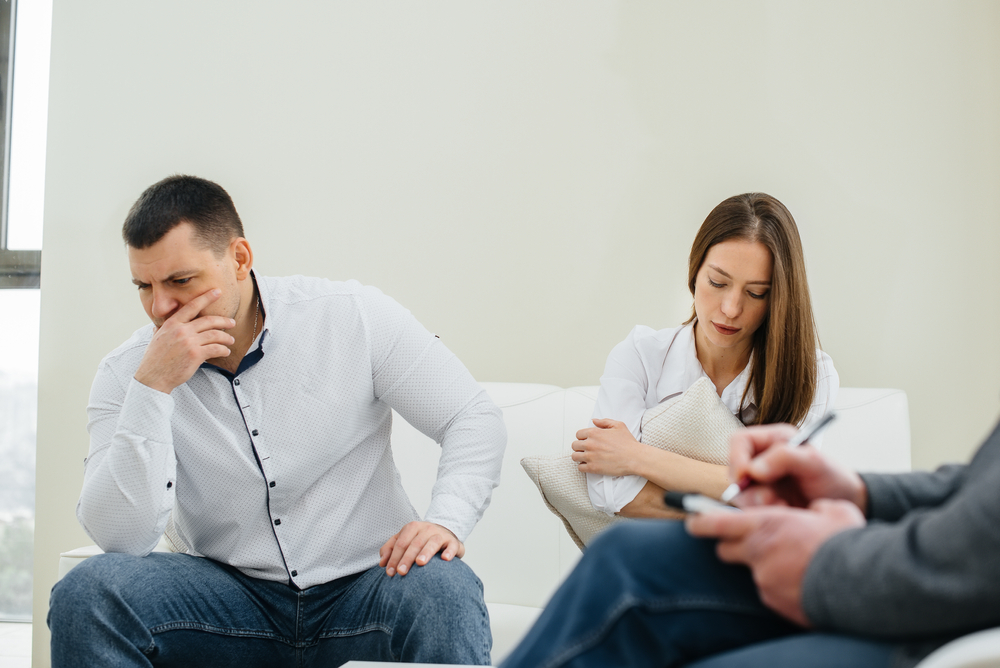
Marriage and family therapists (MFTs), as explained by the American Association for Marriage and Family Therapy (AAMFT), “are mental health professionals trained in psychotherapy and family systems, and licensed to diagnose and treat mental and emotional disorders within the context of marriage, couples, and family systems.” MFTs must have graduate-level training, hold a master’s or doctoral degree in marriage and family therapy, and have completed at least two years of clinical experience. MFTs may provide premarital counseling, relationship counseling, child counseling, individual counseling, and separation and divorce counseling. Marriage and family therapists regularly practice short-term therapy with an average number of 12 sessions. The AAMFT assert that nearly 65.6% of the cases are completed within 20 sessions, and 87.9% within 50 sessions. Marriage/ couples therapy (11.5 sessions) and family therapy (9 sessions) both require less time than the average individuated treatment (13 sessions). Approximately half of the treatment provided by marriage and family therapists is divided between marriage/ couples therapy and family therapy, or a combination of treatments, and the other half is primarily made up of individual therapy. Marriage and family therapists treat a wide range of issues, helping couples or family members overcome difficult situations, reconcile differences, and cope with mental or emotional problems.
MFTs and Couples Therapy
The work that occurs during marriage counseling sessions is guided by the needs of the couple. By nature of participating in marriage counseling both partners engage in shared emotional experiences via the therapy sessions, which can help to foster aligned relationship goals. The work that occurs during marriage counseling can be emotionally charged, elicit difficult to face feelings and seem arduously trying. However, the skills, tools and emotional awareness that can come from actively participating in marriage counseling can be both empowering and insightful. The AAMFT reported the findings of a study that indicate, “of couples who try marriage counseling, 90% feel that their emotional health improves, and two-thirds report improvements in their physical health.” The reason behind why a couple elects to participate in marriage counseling will affect its outcome and success.
MFTs and Family Therapy
Family therapy is a type of psychological counseling that is designed to help improve the interactions of individuals within the family unit, improve the overall wellness of the family, and change patterns of dysfunction. Family therapy is based on family systems theory, which is a theory of human behavior. Family systems theory views the family as a living, complex social system, rather than the sum of its individual members. Family therapy uses systems theory to evaluate family members in terms of their position or role within the family system. Instead of attributing a problem to a single family member, in family therapy, problems are treated by addressing and shifting the way the entire family system functions. A marriage and family therapist facilitating family therapy acts as mediator to ensure every member is heard and creates a safe environment to address specific issues that may be affecting the functioning, cohesiveness, and health of the family unit.
The information above is provided for the use of informational purposes only. The above content is not to be substituted for professional advice, diagnosis, or treatment, as in no way is it intended as an attempt to practice medicine, give specific medical advice, including, without limitation, advice concerning the topic of mental health. As such, please do not use any material provided above to disregard professional advice or delay seeking treatment.


